by Francis Hriadil
As students of the martial arts, we are all engaged in a quest for knowledge and truth. No matter what style or system we practice, we all hope to achieve the highest levels of understanding, skill, and health that are attainable. We recognize that skill in self-defense provides little without health because, without health, skill will not last. Also, health without skill in self-defense is not martial art, and provides few options should a physical confrontation arise. Both elements are essential to the full and complete development of any martial arts practitioner.
The wise among us know this, and understand that this pursuit involves a life-style commitment and a life long dedication. Excellence comes through hard work, discipline, and sacrifice. It cannot be achieved in a month, in a year, or even ten years. There is always room to grow and always more to learn. This does not mean that progress comes through studying many forms, styles, or systems. Excellence comes more through concentration and focus. Learning “deep” is more critical than learning “much” or “many.” A fighter who is expert at a few techniques will always defeat an opponent who knows many techiniques but is expert at none.
In any human endeavor, knowledge and skill come at a price and with an obligation. This obligation is responsibility — the responsibility to use one’s knowledge with wisdom and benevolence, to execute one’s skill with justice and bravery, to uphold one’s heritage with honor and sincerity, and to present one’s achievements with accuracy and humility.
There are literally hundreds of systems and styles and thousands of forms and techniques. Which system is best? Which style should you study? Which form is most beneficial or impressive? Which techniques are most effective? There are probably as many different opinions about these questions as there are proponents of the various martial arts.
What remains the same, no matter what martial art is considered, is that it is based on the use of two hands, two legs, and one body. The key in assessing any martial art is how these body aspects are integrated and coordinated into a cohesive and comprehensive training method for health and self-defense.
Fundamental to the effectiveness and longevity of any martial art are the principles, or foundation, upon which the art is built. A system or style without sound principles is just a collection of techniques. While each technique may work in a number of situations, no one technique will work in all situations. Without a basis in principle, the approach or method is limited. The practitioner will eventually encounter an opponent who uses one or more techniques not covered in his or her repertoire. This often leads practitioners to look to other styles to augment, or even replace, their original or primary martial system. A martial system based on sound principles always provides a solution to any new fighting situation or circumstance. In this way, the system remains flexible, adaptable, and “fresh”.
Without a comprehensive set of principles, there is little depth. Students will practice the “repertoire” for a number of years. They may even become good at what they do. But, after reaching a certain level, their progress or development will slow and eventually stop. Over time, these same students will likely become bored. Also as age, poor health, or poor training methods begin to affect their abilities, they may become frustrated at their progressive loss of skill. Each such student will likely reflect on his or her martial arts career and begin to question its value. Is this all there is? What have I really gained or accomplished? Is there something more? All are natural questions. These students will then start to look elsewhere, and may even quit training altogether.
What is characteristic of any system based on sound fundamental principles is that there is great depth to the art. A student can never become bored or outgrow the system because there are always deeper levels to research and develop. A system with depth addresses the health of the practitioner, as well as the level of fitness and skill. A system with depth is adaptable to changing conditions and circumstances. A system with depth provdes the practioner with capabilities, rewards, and benefits that are lasting and will not be lost over time. A system with depth enables the practitioner to continue to improve, progress, and excel even as he or she ages, because it is not based simply on raw physical strength or speed.
It is no easy task to find such a martial art; there are literally hundreds of styles and systems to choose from. Selecting the right system, however, is only part of the problem facing the student. Finding the right instructor is also of critical importance. The student can never make significant progress in any system if the instructor is not proficient or is not willing to teach. The task is to find:
- one who knows
- one who can teach
- one who will teach
Finding such an instructor locally is generally not possible. In the modern era, however, it is much easier for the student to travel to “the mountain” or even arrange to have “the mountain” travel to the student. But, the question still remains “Which is the right mountain?”
The dilemma of the good teacher is not an easy one either. Here, I am not speaking of those engaged in the “business” of mass selling the martial arts, and whose chief interest is the pursuit of fame and/or wealth. True masters are humble by nature. They recognize their obligation to uphold and honor their heritage. As such, they are always concerned with finding students of good character – students who will not misuse and abuse their art. It generally becomes apparent (to those who take the time to really look) whether the atmosphere at a school is “right” – whether the instructor is a good represntative and steward of his/her art, or whether the instructor is engaged in some self-serving, personal agenda.
What? Who? And, where? All are important aspects that must be considered. But, there is also one thing more — you must consider yourself.
Your interests, goals, expectations, attitude, and sincerity as a student are elements that can not be overlooked. No matter how good the instructor is, he/she cannot simply “give” the martial art to you. You can only “earn” the skills and benefits of the art through long study and dedicated practice. To accomplish this, you must be patient, disciplined, and willing to embrace the art as an integral part of your life. As with any serious activity, you will only get out of it what you put into it. Even the best method taught by the best instructor will provide you with little if your attitude is poor, your commitment is weak, and/or your participation and practice is casual or half-hearted. This is not the fault of the method or the instructor. They can only show you the way. It is up to you to do the work that is required. Generally, if you have little enthusiasm or interest in the art, if you are not receptive to the method and training lessons that are taught, and/or there is poor rapport between you and the instructor (for whatever reason), the experience will not be very productive or enjoyable.
When ever people ask me how I judge a martial art, I tell them that I consider the following kinds of questions:
- Does the method or art have depth? Is it comprehensive, balanced, and has it maintained its integrity?
- Does the art address both health and self-defense in a natural way?
- Does the art provide meaningful results and lasting benefits?
- Is the instructor knowledgeable, proficient, affable, and willing to teach?
- Is the atmosphere and environment conducive to learning?
- Is the activity something that interests me and that I find enjoyable?
In the final analysis, it comes down to three issues:
- the nature of the art
- the nature of the instructor
- the nature of you, the student
There can be no better circumstance than finding an art you enjoy, that is the right art with the right instructor. No other situation can provide a better learning experience or is more conducive to the development of true ability and skill.
Is the traditional Ba Gua Zhang martial art and qi gong method of Lu Shui-Tian as taught by Master Bok-Nam Park, or one of his certified instructors, the right method for you? This is something only you can answer. And, the only way to determine that answer is by giving it a try.

